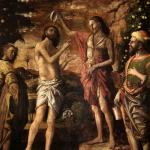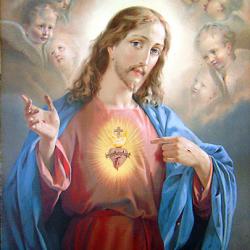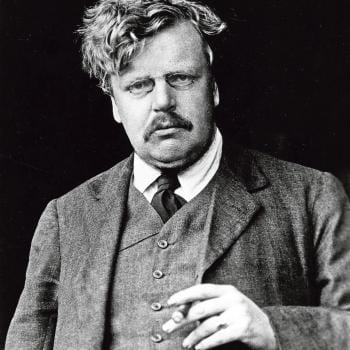“We look towards Christ, the Redeemer of man. We wish to look towards Him-because there is salvation in no one else but Him, the Son of God.” [1] The deepest truth about God and the salvation of man shines forth in Christ, who is at the same time the mediator and the fullness of all revelation”. [2] This is the radical claim of the Roman Catholic Church and of all the various Christian denominations who believe the above statement about Jesus Christ to be an absolute objective truth. But how does this claim fare today in a postmodern world of multiple religious beliefs and customs? To the post-modern mind, viewing one religious conviction and experience as objectively true over another’s is seen as very intolerant to those who may not share in that person’s conception of what they claim to be objectively true. “If tolerance is one of the foundations of the modern age, then is not the claim to have recognized the essential truth an obsolete piece of presumption that [should] be rejected?” [3] By stating that Jesus Christ is the only absolute way to know and experience God might imply that God neglects a great deal of the human race. If Jesus Christ is the only savior it would appear to limit his accessibility to reach out to the vast majority of mankind. The question then can be asked, “Is God either unwilling or unable to save all? This view runs counter to the core of Jesus’ preaching of a God bent on human salvation.” [4] How can what appears to be in the postmodern mind, arrogant claims of subjective experience forced upon others as objective reality, find acceptance in a world of multiple religious convictions about who and what God is?
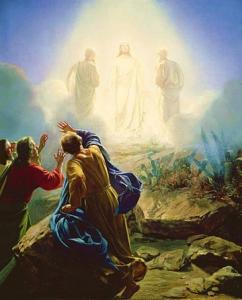
How does a Christian present the person of Christ to a postmodern world of various religious views so as to engage in inter-religious dialogue? One way is to strip Jesus Christ of the traditionally understood belief that He is the exclusive way to know God. Theologian Fr. Roger Haight, S.J. states in his book ‘Jesus: Symbol of God’ that “it is difficult to believe today that one religion alone can possess the fullness of truth about transcendent reality.” [5] For Fr. Haight, Jesus Christ is not the transcendent reality of life, but one of the many symbols of God that mediates His presence to the world as experienced by the Christian community. Because He is the normative revelation of God to Christians does not mean that God does not mediate his presence through some other normative symbol in another religious world view. John Cavadini in his review of Fr. Haight‘s book comments, ‘If Jesus is merely a symbol, and Christianity merely a symbol system with Jesus as the “primary hermeneutic principle,” the inter-religious dialogue Haight prizes does become easier.” (Cavadini 2)
Fr. Haight’s theology presupposes that the traditional proclamation of Christ alone as savior is “a fundamentalism opposed to the spirit of modernity and as a threat to the principal goods of tolerance and freedom.” [6] The Magisterium believes that the traditional proclamation of Christ is not a threat to inter-religious dialogue but the only real way to engage in any authentic dialogue. In the following essay I will clarify Fr. Haight’s position of Jesus Christ as one religious symbol among many and how in his opinion, differencing religious opinions can both be true. This view I believe dismisses intellectual honesty in not accepting that each religious belief system can not be equally true because of the exclusive claims each religious system makes about itself. When examining differencing exclusive religious claims, the traditional claim about Christ is unique above and beyond any of them and can not be ignored for the sake of religious pluralism. I will conclude with how the Magisterium views other religions and how they present their proclamation of Christ in inter-religious dialogue.
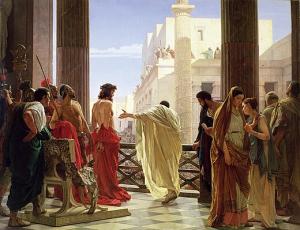
Fr. Haight’s theology appears to stem from Kantian philosophy which assumes that any thing knowable about God is inaccessible because of his transcendence above human nature. The only thing we can know about God is experienced through signs and symbols. “Thus what is perceived by the human subject is not reality as it is, but only its representation through our particular system of perception.” [7] The experience of God has been communicated in various ways in different times and places. Theses experiences through signs and symbols thus become the normative way a particular culture understands God. Fr. Haight goes on to say that for those who believe in Christianity, Jesus of Nazareth is the normative means God communicates to them. Jesus is thus not the exclusive way of understanding God because there are other ways in which He is mediated to the human race. Holding to the exclusive claims of the traditional Christian proclamation of Christ as the only savior, Fr. Haight insists, would contradict the effective universality of God’s love for all mankind. God does not withhold his saving presence from the majority of mankind because he does reduce his mediation through just one channel alone. Fr. Haight asks “Why is Jesus not one of many symbolic actualizations of God’s loving presence to humankind? Cannot “more” of God be revealed in other “incarnations”? There is no hard reason why God could not approach humankind in a variety of ways and in more than one medium, so that such a restriction seems inappropriately predicated of God.”[8]
Fr. Haight firmly believes that even though different religions teach different things about the reality of the universe, they are not necessarily contradictory to one another. How does one reconcile harmony between the views that say there is one God as opposed to many gods? Monotheistic religions such as Christianity and Islam teach that a person stands before God for judgment about their life after they die. They then either go to Heaven or Hell for all eternity. There are no more chances to lead a better life. How is this viewpoint as equally true as religions that teach that a person does have a second chance at life by reincarnation in another body after they die. Two equally opposed view points can not equally both be true. Yet Fr. Haight claims God can mediate his divine reality through equally opposed religious viewpoints. How can he say with credibility that one religion does not contradict another? Because he believes that religious language never refers to objective reality about God. There is no way to compare transcendent truth if you do not have access to that truth, which no human being does according to Fr. Haight. Religious language then in his opinion only refers only to subjective experience. “If religious language only referees to subjective experience, then all religions may be equally true to such experience. I do not accept the idea that because religious experiences and corporate religious worlds of construal are subjectively different, these differences correspond to different objective worlds or autonomous spheres of objective realty.”[9] Religious experience is always mediated through the media of historicity. Historicity flows through fallible historical instruments. You can not separate the transmission of transcendent realty from the symbolic medium in which it is expressed. The medium is thus limited because of its finite nature. This would naturally effect the message that is being mediated through that medium.
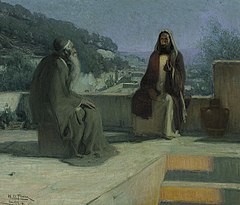
“All experiences and conceptions of ultimate realty are subject to comparison and valuative judgments in and through study, dialogue, and dialectic. Because of the complexity of any historical and cultural mediation of the experience of ultimate reality, a great many seemingly apparent contradictions concerning ultimate truth may in fact not be so. Because of their historicity, religious ideas are difficult to compare: it can be hard to discover where the commensurability of perspective lies, and it can never be perfect. We are learning more and more how deeply historicity and situation affect a distinctiveness of perception, conception and evaluation. [10]
For Fr. Haight what is normative in your religious experience is equally normative as someone else‘s normative religious experience. This is again because religious belief expresses subjective and not objective reality. By realizing what Fr. Haight believes to be true in his theological opinion, a person can be open-minded to learning more about the truth of God as expressed by how He mediates Himself through other religious symbols. Fr. Haight believes that religious experience is the only normative grounds that one can judge religious truth on, and because that experience is totally subjective, two diametrically opposed viewpoints can stand in harmony with one another. Inter-religious dialogue in his opinion, is thus possible when you don’t have a bearer as subjective religious experience posing as objective truth standing in the way.
Fr. Haight has reconstructed the traditional teaching of Jesus to fit into a worldview that a postmodern mind can accept. The divinity of Jesus as understood by the traditional proclamation of the Catholic Church is no longer an objective reality but only a subjective symbol of an experience of God by a particular religious community. Fr. Haight believes he has conceived a perception of Christ that anyone of any religion can accept and follow. Is this true of the average traditional Christian believer? Writer John Cavadini thinks not.
“If Jesus is a merely a symbol, I have no burning reason to invest the time and energy it takes to pass this faith on to children, or to spread the Word to others when other symbols (even the Roman emperor?) serve just as well. I see no particularly urgent reason to take up my cross and follow a symbol (or even to teach for one.) Pace Roger Haight, and to paraphrase Flannery O’Connor, “If Jesus is merely a symbol, I say the hell with it.” (Cavanidi 3- 4)
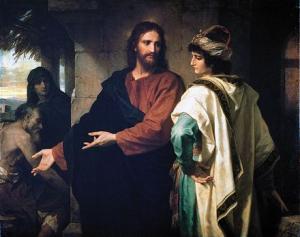
If Jesus is just a symbol who dispensed an objective experience of God for humanity among other symbols, why would one be inclined to follow him and not some other religious symbol of God? “If Christianity only means one more bit of [subjective religious experience], then Christianity is of no importance. There has been no lack of [subjective religious experience] for the last four thousand years. A bit more makes no difference.” [11] When one reads the biblical accounts of Christ and the patristic Church’s interpretation of Him, it suggests that the early Christian church believed that Christ was not a symbol who mediated God’s presence, but was a person who was transcendent reality itself. This conviction was believed to be objectively true over and above any subjective experience.
“Only a person can be something more then a symbol; a person is someone who speaks a word to us which we receive in faith. There is a great difference between the attitude which seeks to listen to a person who speaks a word and the attitude which seeks to interpret a symbol. It is the difference between receiving meaning and creating meaning, between understanding and self-assertion.” [12]
After reducing Jesus to one symbol among a plethora of symbols , Fr. Haight then restructures the principal of non-contradiction so it can fit nicely into the ideology of tolerance towards contrary belief systems. The philosophy he constructs to make contrary viewpoints non-contrary not only does intellectual injustice to Christianity but to all intelligent people in any religious system of beliefs. “Religion demands the making of distinctions, distinctions between different forms of religion and distinctions within a religion itself, so as to find the way to its higher points. By treating all content as comparably valid and with the idea that all religions are different and yet actually the same you in the end get nowhere. The renunciation of truth does not heal man. [13]
In studying other religions, one finds that each and every religious system makes exclusive claims about its approach to God. The central core of these religious ideas is quite contrary to one another. Any religious belief that presupposes what they believe is objectively true is contrary to Fr. Haight’s philosophy. When one looks at the claims of Christ as they are traditionally stated by the witness of the early church, one finds the claims are radically different then any other religious system or thought.
“Why isn’t Jesus simply considered a wise man like Socrates? Or a prophet like Muhammad? Or enlightened like Buddha? [Because] Christ is unique! He holds within Himself the entire intimate world of divinity. But at the same time Christ is so human! Thanks to this, the entire world of men, the entire history of humanity, finds in Him its expression before God. And not before a distant, unreachable God, but before a God that is in Him-that indeed is He. This is not found in any other religion, much less in any philosophy.”[14]
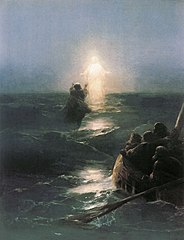
When Jesus asked who people said he was and Peter responded, “Thou art the Christ, the Son of the Living God.’ Jesus answered him and said to him, ’Blessed are you Simon Bar-jona, because flesh and blood did not reveal this to you but My Father who is in heaven.’ (Mt 16: 16,17) How would some of great religious figures had responded if you had asked them a similar question? “If you had gone to Buddha and asked him ‘ Are you the son of Bramah?’ He would have said, ‘My son are you still in the vale of illusion.’ If you had gone to Socrates and asked, ‘Are you Zeus?’ He would have laughed at you. If you had gone to Mohammed and asked, ‘Are you Allah?’ he would first rent his cloths and then cut your head off.” [15]
In light of the radical claims the Catholic Church says Christ makes about himself, Fr. Haight has redefined Jesus Christ as one symbol among many. This concept of Christ makes Him more approachable, in his opinion, for inter-religious dialogue, because He is seen as nothing unique above and beyond any other religious figure or system of beliefs. The Magisteriam’s answer to inter-religious dialogue is not to redefine Christ so that He will be more approachable by all religions in a postmodern world, but to proclaim Him as He has been traditionally proclaimed; the only mediator between God and man. Does this proclamation of the Church imply that God is holding out his love to those in other religions? No it doesn‘t because God’s love is “for all men of good will in whose hearts grace works in an unseen way. For, since Christ died for all men, we must believe that the Holy Spirit in a manner known only to God offers to every man the possibility of being associated with this paschal mystery.” [16]

Even though the Catholic Church believes she possesses the fullness of truth about transcendent reality, she does not come to inter-religious dialogue with the haughty disposition that all non-Christian religions contain nothing but error. To have this attitude would end any attempt at dialogue and would disrespect the people God wants us to reach out to. The Catholic Church instead…
“rejects nothing of what is true and holy in these religions. She has a high regard for the manner of life and conduct, the precepts and teachings, which, although differing in many ways from her own teaching, nonetheless often reflect a ray of that truth which enlightens all men”. Inter-religious dialogue, which is part of the Church’s evangelizing mission, requires an attitude of understanding and a relationship of mutual knowledge and reciprocal enrichment, in obedience to the truth and with respect for freedom. ”[17]
The church does not ignore the distinct contradictions it has with other faiths because to deny what it teaches for the sake of inter-religious conversation would be to deny what she believes to be objectively true and no real dialogue can take place with those who are not honest about what they believe. “But as St. Augustine recognized in his own experience of dialogue, human beings are capable of true mutual understanding only when they are conscious of communicating in the truth: the greater their commitment to the fundamental reality of truth the greater will be their capacity to discover real common ground.“[18]
The Catholic Church also does not ignore the truth of God that is to be found in other religions.
Any truth found in another religions is but a reflection of the fullness of the truth which has been fully revealed by God to subsist in the God-man Jesus Christ and the Church that He founded. The Catholic Church’s mission is to spread this message to the nations. She engages in dialogue with others not only to listen and understand others worldviews but to witness the love of Christ, who died for people of all religions. [19]
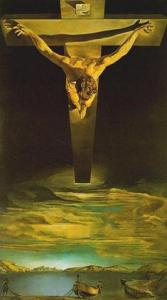
Both Fr. Haight and the Magisteriam of the Catholic Church believe that God loves humanity. Fr. Haight believes that the love of God can not be real if He limits that love through one medium. He thus strips Christ of His divinity to make him more excisable to those who don’t believe in the Christian revelation. The Catholic Church on the other hand believes that because Christ is divine, He is accessible to everyone in all religions whether they know it or not. The Christ of Catholic faith speaks to men of all times because he is a transcendent truth that remains true regardless of one’s subjective experience. He makes his presence known implicitly in other religions and has his Church send out missionaries to make that presence known explicitly. To present anything but the truth about Christ would be un-loving to those who have a right to know the truth that Jesus Christ is not just one symbol of God among other symbols of God. “If He were only a wise man like Socrates, if He were a “prophet” like Muhammad, if He were “enlightened” like Buddha, without any doubt He would not be what He is. He is the one mediator between God and humanity.”[20]
[1] Pope John Paul II, Redemptor Hominis: The Redeemer of Man (1979), 7.
[2] Congregation for the Doctrine of the Faith, Dominus, Iesus: On the Unicity and Salvific Univerality of Jesus Christ and the Church (August 6, 2000), 5.
[3] Joseph Cardinal Ratzinger, Truth and Tolerance: Christian Belief and World Religions (San Francisco, Ignatius, 2003), 210.
[4] Roger Haight, S.J., Jesus: Symbol of God (Maryknoll, New York, Orbis Books, 1999), 404.
[5] Ibid, 422
[6] Joseph Cardinal Ratzinger: Some Reflections on Subjectivity Christology, and the Church in Proclaiming the Truth of Jesus Christ: Papers from the Vallombrosa Meeting (Washington D.C. United States Catholic Conference, 2000) , 18.
[7] Ibid, 18.
[8]Roger Haight, Jesus: Symbol of God, 433
[9] Ibid, 401.
[10] Ibid, 402.
[11] C.S. Lewis, Mere Christianity, 21st printing (Macmillan Publishing Co. Inc. , New York, 1976) Book IV 1, 137.
[12] Ratzinger, Some Reflections on Subjectivity, Christology, and the Church, 20.
[13] Ratzinger, Truth and Tolerance, 204.
[14] Pope John Paul II, Crossing the Threshold of Hope (New York, Alfred A. Knopf, 2003) pg. 43
[15] C.S. Lewis, What are we to do with Jesus Christ? In God in the Dock: Essays on Theology and Ethics: (Grand Rapids, Michigan, Willim B. Eerdmans Publishing Company, 1970 Reprinted 1995) pg. 157-158.
[16] Second Vatican Council, Gaudium et Spes, 22.
[17] Second Vatican Council, Nostra aetate, 2.
[18] Ratzinger, Some Reflections on Subjectivity, Christology, and the Church, 19.
[19] Francis Cardinal Arinze, The Church in Dialogue: Walking with Other Religions (San Francisco, Ignatius Press, 1990) 20.
[20] Pope John Paul II, Crossing the Threshold of Hope, 42-43.



